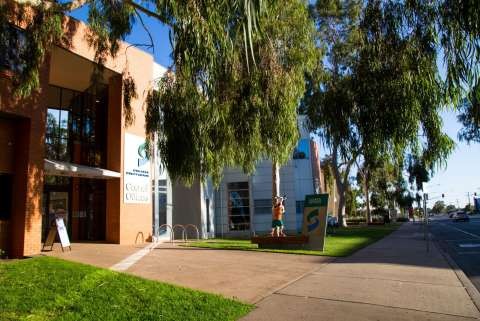A new Agilent mass spectrometer system for fluxomics and discovery work has now been successfully installed in the Fluxomics Centre at the Heart Research Institute (HRI).
Fluxomicsenables scientists to watch changes in cells in real time, potentially revolutionising the way cardiovascular diseases (CVDs), including heart attack, strokeand coronary heart disease, are diagnosed, treated and prevented, making personalised medicine a reality for every heart.
Despite the huge impact of CVD on everyday lives, experts still do not understand why it develops and progresses differently in each patient.
The installed cutting-edge instrument, funded by the incredible generosity of HRI supporters and a grant from The Ian Potter Foundation, will allow researchers to deeply analyse molecular changes in CVD over time. In the long run, this will enable the creation of a database of molecular fingerprints that will then help doctors decipher the unique biological needs of each patient for more personalised CVD treatments.
Head of the Fluxomics Centre, Dr Sergey Tumanov, is drawing on his work in cancer research to leverage this new technology for groundbreaking research.
“Yesterday’s discoveries can help our parents and grandparents to live longer and healthier lives. We want the younger generation to benefit from tomorrow’s discoveries,” said Dr Tumanov.
Using the liquid chromatography-mass spectrometer (LC-MS) system, Dr Tumanov and his team at HRI will work to unlock some of the key mysteries of cardiovascular research to develop a critically deeper understanding of how and why CVD is formed, including why people who lead a healthy lifestyle still get CVD, why current treatments work well for some people but not for others, and why women and men develop the disease.
“The new LC-MS system is a valuable addition to the existing range of instruments within the Fluxomics Centre. Prior, we were limited by analysing small molecules and drugs in targeted fashion, ie, using a pre-determined shortlisted set of molecules. The new instrument allows us to analyse biological samples in untargeted fashion, collecting large datasets,” says Dr Tumanov.
“Collecting as much information as possible from each sample by including in the analysis previously overlooked molecules – this is what gives us the power of discovery.”
Dr Tumanov continues, “On top of the untargeted sample analysis, we now can study changes in metabolism in cells and tissues over time to understand how various CVDs develop and progress. Stable isotope tracing and mass spectrometry are two major platforms that help in capturing dynamic changes of metabolism, thus helping us develop better biomarkers to detect disease at an early stage and discover new drug targets.”









